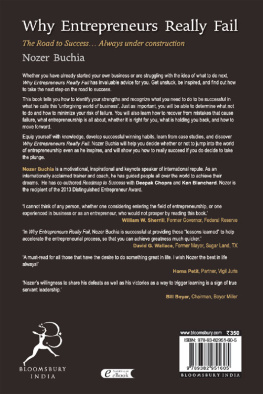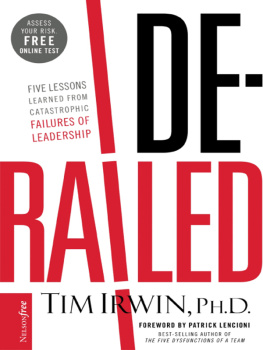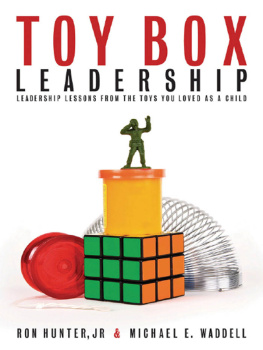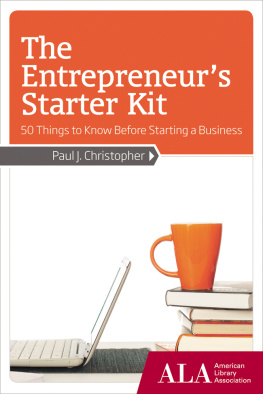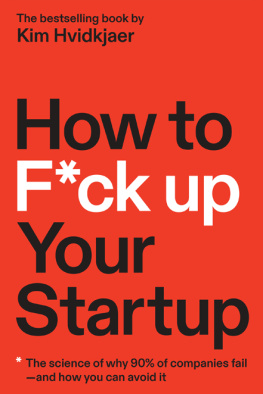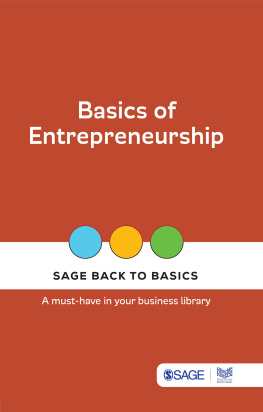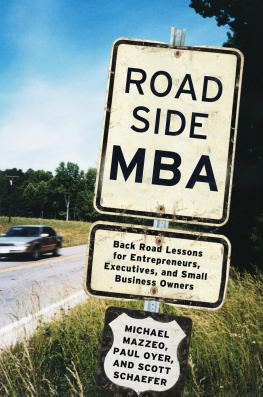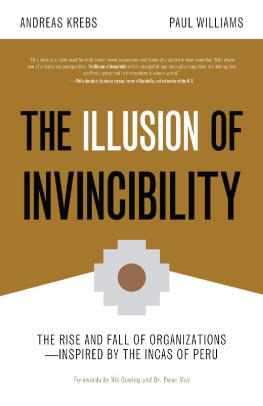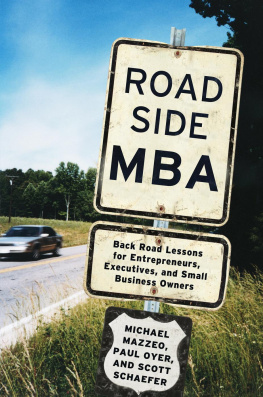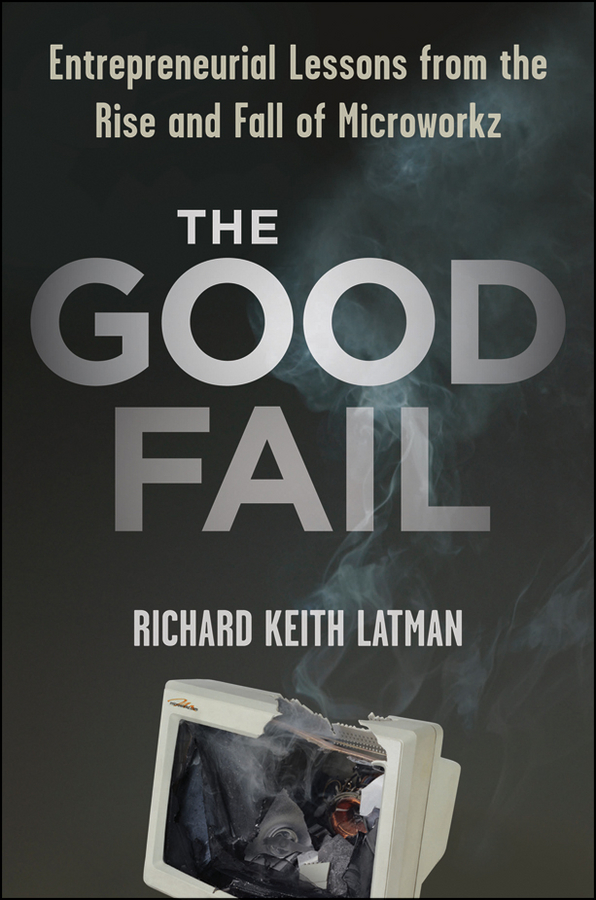Contents

Copyright 2012 by Richard Keith Latman. All rights reserved.
Published by John Wiley & Sons, Inc., Hoboken, New Jersey.
Published simultaneously in Canada.
No part of this publication may be reproduced, stored in a retrieval system, or transmitted in any form or by any means, electronic, mechanical, photocopying, recording, scanning, or otherwise, except as permitted under Section 107 or 108 of the 1976 United States Copyright Act, without either the prior written permission of the Publisher, or authorization through payment of the appropriate per-copy fee to the Copyright Clearance Center, Inc., 222 Rosewood Drive, Danvers, MA 01923, (978) 750-8400, fax (978) 646-8600, or on the Web at www.copyright.com . Requests to the Publisher for permission should be addressed to the Permissions Department, John Wiley & Sons, Inc., 111 River Street, Hoboken, NJ 07030, (201) 748-6011, fax (201) 748-6008, or online at http://www.wiley.com/go/permissions .
Limit of Liability/Disclaimer of Warranty: While the publisher and author have used their best efforts in preparing this book, they make no representations or warranties with respect to the accuracy or completeness of the contents of this book and specifically disclaim any implied warranties of merchantability or fitness for a particular purpose. No warranty may be created or extended by sales representatives or written sales materials. The advice and strategies contained herein may not be suitable for your situation. You should consult with a professional where appropriate. Neither the publisher nor author shall be liable for any loss of profit or any other commercial damages, including but not limited to special, incidental, consequential, or other damages.
For general information on our other products and services or for technical support, please contact our Customer Care Department within the United States at (800) 762-2974, outside the United States at (317) 572-3993 or fax (317) 572-4002.
Wiley also publishes its books in a variety of electronic formats. Some content that appears in print may not be available in electronic books. For more information about Wiley products, visit our web site at www.wiley.com .
Library of Congress Cataloging-in-Publication Data:
Latman, Richard Keith.
The good fail : entrepreneurial lessons from the rise and fall of Microworkz / Richard Keith Latman.
pages cm
ISBN 978-1-118-25071-6 (cloth); ISBN 978-1-118-28327-1 (ebk); ISBN 978-1-118-28444-5 (ebk); ISBN 978-1-118-28640-1 (ebk)
1. Entrepreneurship. 2. Business failures. I. Title.
HB615.L275 2012
658.421dc23
2012003003
I am very blessed, after all I have put my friends and family through, to still have many people who believe in me and have been supportive through the years. This book is dedicated to my mother Lynne who, in good times and bad, when I was right and wrong, has always been there. I love you, Mom.
Preface
During the first 45 years of my life, I started 11 different businesses, contributed to hundreds of others, and stumbled vastly more than I succeeded. Whether it was creating custom bumper stickers for college students, shooting virtual tours of luxury hotels in Hawaii, or reinventing the distribution model for millions of computers, one thing has stayed completely consistent: I was never afraid of failure.
The definition of a Good Fail , as defined by yours truly, is a failure that has a learning value greater than the offset collateral damage. It is a failure that an entrepreneur is unlikely to repeat and one that will positively shape that persons managerial and business acumen. In short, its a lesson from the hard knocks of the high stakes risks inherent in the pursuit of fame and fortune.
Of course, there are many different kinds of failures and, to be sure, they are not all created equal. I specialize, I hope, in intelligent failuresthose that happen quickly and inexpensively and that contribute new critical ideas about your customers and/or business plan. These should be more than just grudgingly acceptable; they should be welcomed and embraced. Figuring out how to master this process of failing fast and failing cheaply and stumbling toward success is something companies have to get good at, and it is critically what has helped me avoid an even worse pummeling at the altar of business.
Getting good at failure, however, doesnt mean creating anarchy or chaos out of the company. It means leaders, not just at weekly staff lunches, but also in the trenches, every day, who create an environment safe for taking risks and who share stories of their own mistakes. It means bringing in outsiders unattached to a projects past. It means carving out time to honestly reflect on failure, not just success.
Perhaps most important, it means designing ways to measure performance that balance accountability with the freedom to make mistakes. People may fear failure, but they fear the consequences of it even more. Its an unusual executive who can balance the performance culture with the learning culture and avoid deep conflict.
Companies need to remember this is a long-term game and one that is bound to have ups and downs. Downs are failures and ups are successes from the failures: Its that simple. You really dont need to hire a consultant to evaluate this because youve been doing this longer than you can imagine. Your first step upright as a very small child was preceded by hundreds of failures. I hope that youre a little better at that ratio by now, but clearly the long-term goals dont stop just because you trip over your own feet.
Few put it as well as Theodore Roosevelt when he said, Far better is it to dare mighty things, to win glorious triumphs, even though checkered by failure... than to rank with those poor spirits who neither enjoy nor suffer much, because they live in a gray twilight that knows not victory nor defeat. Perhaps this statement is slightly militaristic, but it aptly gets the point across about what all strong leaders embody. There are those who study, those who lecture, and those who execute what they are put on this earth to do. In my new version of rock-paper-scissors, execution always wins over study and lecture.
I have always viewed my business and personal losses as steps toward my eventual success and, although my road has been a painful one, it was a journey that has made me who I am today. Make no mistake about it; I am deeply embarrassed at some of the decisions I made and saddened by the people who I hurt along the way. With this book I hope that in some measure I can explain my thoughts, teach what is obvious, and mentor to the best of my ability anyone willing to invest the time to read. In truth, I believe failure is a requirement for success. Fortunately, you dont need to fail as spectacularly as I did.
I have tried to remember all the events factually and, of course, present them in such a way that your experience with the story imparts the same wisdom I absorbed by living it. Its amazing to me, looking back, that so many things happened so fast in the runup to the dot-com bust, but that was the way we lived. Its funny, as I watch Silicon Valley today: Many of the same players are blowing a new web bubble as I write this, and almost as sure as can be, many good fails are about to happen.
Introduction
Your life is about to change, the menacing male voice on the other end of the phone warned me. Ive just received notice that the attorney generals office has commenced a formal action against you. Bye-bye. Then there was a click as the line went dead. I froze.


